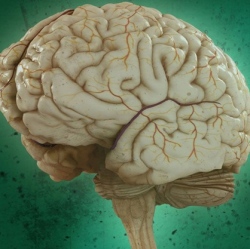
According to the National Institutes for Mental Health, anxiety disorders affect over 18 percent of the population in the United States alone. So the need for different treatments options is clearly evident. Researchers at the Åbo Akademi University in Finland and the Institutes of Aging in the US may have just found a new one.
In studies conducted with mice, they discovered a molecule that alleviated anxiety, a find that may open an entire new path to treating the condition in humans
They learned that a protein called JNK stops new neurons from forming in the hippocampus, a brain region that’s associated with memories, but is also a key part of the limbic system, which has a vital role in regulating our emotional responses. The creation of new neurons in this area is thought to play an important role in reducing anxiety, so when the process is hampered, the thinking goes, anxiety – and often along with it, depression – can rise.
In the study, the researchers engineered a leukemia retrovirus that typically causes cancer in mice to to express a chemical that inhibits JNK. They then gave that chemical to the mice and ran them through a battery of tests to gauge their responses.
One of the tests involved an elevated maze with two opaque arms and two transparent arms that was placed 50 cm (1.6 ft) above the floor. When JNK was inhibited, the mice spent more time in the transparent arms than in the dark arms compared to mice who didn’t have the inhibitor. By seemingly being at ease in a dangerous-looking situation, the researchers concluded that the mice were exhibiting less anxiety.
The mice were also given the choice between a dark environment, which they would typically deem as safe, and a light area, which would be more anxiety inducing. The mice given the molecular compound that inhibited JNK spent much more time in the illuminated area – a situation that would normally cause stress but didn’t. They also spent more time in the middle of an open mini-arena, rather than huddling against the walls.
